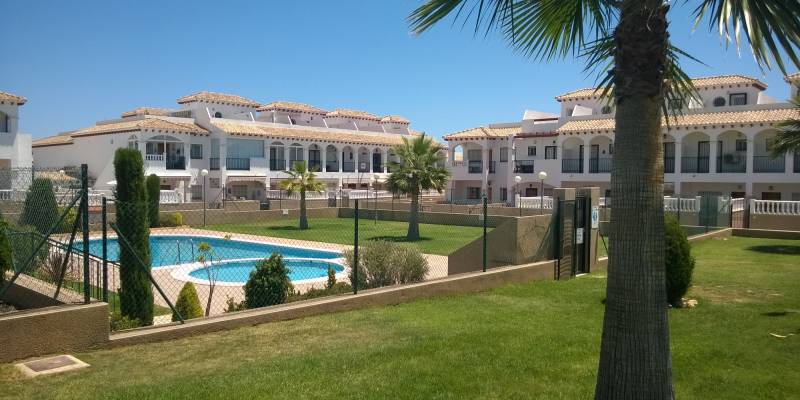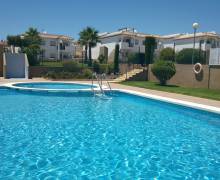360HomeTour Our latest news

Renting Your apartment in Spain
What should you know before you rent your apartment in Spain? This blog post discusses things to consider, such as registering an apartment and the tenant, expenses, brokerage fees, taxation, and contract types. Some of the most important rights of tenants and landlords are also gathered here from various sources.

Short-term renting of an apartment requires the registration of the apartment in the holiday home register. It takes about three months to get a license. The registration is subject to a house certificate, which is given at the purchase of the house and is valid for 10 years at a time. In the case of new buildings, the certificate can be obtained from the builder and when purchasing a used dwelling it will be provided by the seller. In addition to the license, you will get a sign to hang by the door. The person who handles the keys to the apartment will meet the tenants personally and ensure that all the legal information and signature is taken up. This is the responsibility of the owner, but the key issuer assures it on behalf of the owner. Registration of tenants is compulsory in Spain. All over 16-year-old tenants must be recorded with a copy of the passport, ID card number, name, gender, date of birth, country of origin, and time of renting the apartment. This information is provided to the local police. Similarly, the personal details of the owner of the dwelling and their signature must also be submitted to the authorities.
If you rent your apartment in Spain, you will also be required to inform the tax office of your rental income for tax purposes. Notification is made four times a year if you are not a resident. If, on the other hand, you are a resident and taxable person in Spain, you will make a declaration in connection with your annual tax return. EU citizens are entitled to reduce their rental income taxes, for example. cleaning costs, etc., in connection with renting an apartment.
Usually the tenant pays the electricity he uses. Either the electricity and water bills are billed either from the owner's account and the tenant pays back to the owner or the account of the tenant is directly charged. This encourages the paying of invoices, because if they are not paid and the electricity is cut off, its re-connection is expensive and will be paid by the tenant. The owner pays the owner union fees, property tax (IBI) and the statutory insurance for the apartment. Usually, the insurance does not cover the property brought by the tenant to the apartment. The apartment may include a car park or a separate warehouse. It is advisable to include mentioning them in the contract if they are included in the price.
Different contract types and commission fees
Temporary rental apartments are usually clearly divided into two categories: weekly holiday tourists and some months of fixed-term contracts. In the summer months, the price of a weekly rent may be the same as one month in the winter months. The price of a few months' monthly rent is also clearly more expensive than a long-term contract.
A long-term contract is usually concluded for 11 months and the tenant can continue for up to three years if desired. This must be reported 30 days before the contract expires. The agreement will continue on the same terms for three years if the tenant so wishes. Tenant rights are strong in Spain and they are difficult to get out of the apartment even if they do not fulfill the terms of the contract. For this reason, it is generally advisable for the owner of the dwelling to be sure of the tenant's solvency. Before signing a contract, you may require some form of proof of income: a pension, a salary, or a balance on their bank account. The tenant cannot sublet the apartment further, but has the right to accommodate friends and relatives there.
15-20 percent commission on the monthly rent is quite common and is paid by the tenant if not agreed otherwise. Usually, the landlord and the realtor agree on the commission. The rented apartment is always cleaned by a cleaning professional, hired by the broker, who is paid a separate cleaning fee unless it is to be included in the price. The cleaner often also checks the apartment at the same time. Apartments are usually rented out furnished and equipped, so you can negotiate with the broker for the level of equipment. In addition to renting, water and electricity bills are managed through an intermediary unless otherwise agreed. The rent does not include other housing expenses than separately agreed. The commission for a long-term rental apartment is usually a month's rent, the sum of short-term rental apartments is proportional to the rent and rental period.

Termination of the lease agreement
Under the law, the tenant has the right to terminate the contract after the contract has lasted six months. The departure must be communicated in writing one month before and the tenant must compensate the owner for one month's rent per year remaining. So if, for example, the contract was “unused" for four months, then the tenant pays the owner one third of the rent. entry into force.
The landlord cannot go to the apartment without the tenant's permission and the tenant does not need to let the landlord enter even if he is at home. The contract generally mentions that the repairman of a reported fault that has appeared must be able to enter the apartment. When making the contract, the owner is usually paid a one-month leasing guarantee to cover the damage caused by the tenant in the apartment. Normal wear and tear of the dwelling is allowd and the owner of the dwelling is cannot use the guarantee to fix it. If there are household appliances in the apartment and they brake, they will have to be repaired or replaced by the owner. Only if the fault is attributable to misuse, is the tenant liable or if it is stated in the contract that it is the tenant's responsibility.
Sources:http://www.koti-auringossa.com/asunnon-vuokraaminen-espanjassa/, https://espanja.com/ostaminen-vuokraaminen/asunnon-vuokraaminen-osa-1-2-lyhytaikainen-vuokraus/, https://www.interlaki.es/kiinteistojen-vuokraus-espanjassa/, https://www.spain-holiday.com/rentalbuzz/government-target-registration-and-taxes-on-holiday-rentals, https://www.spanishpropertyinsight.com/2018/08/23/legally-renting-out-property-in-spain/ https://www.spanishsolutions.net/blog/businesses-in-spain/the-new-legal-procedure-for-holiday-rentals/, https://www.spanishsolutions.net/blog/legal-issues-in-spain/tourism-licence/








